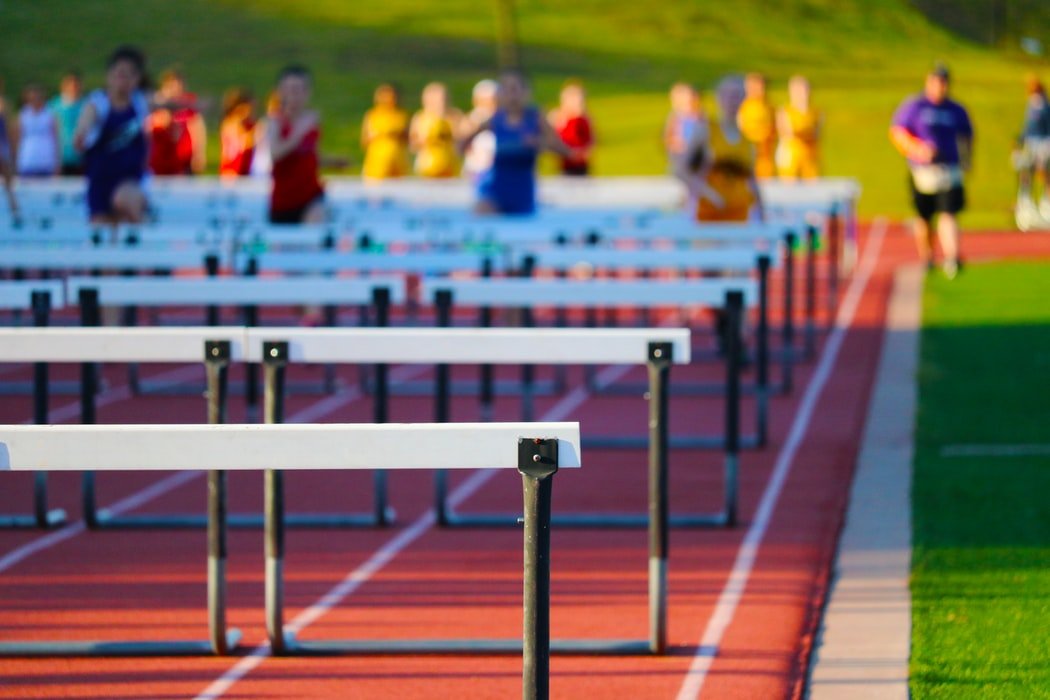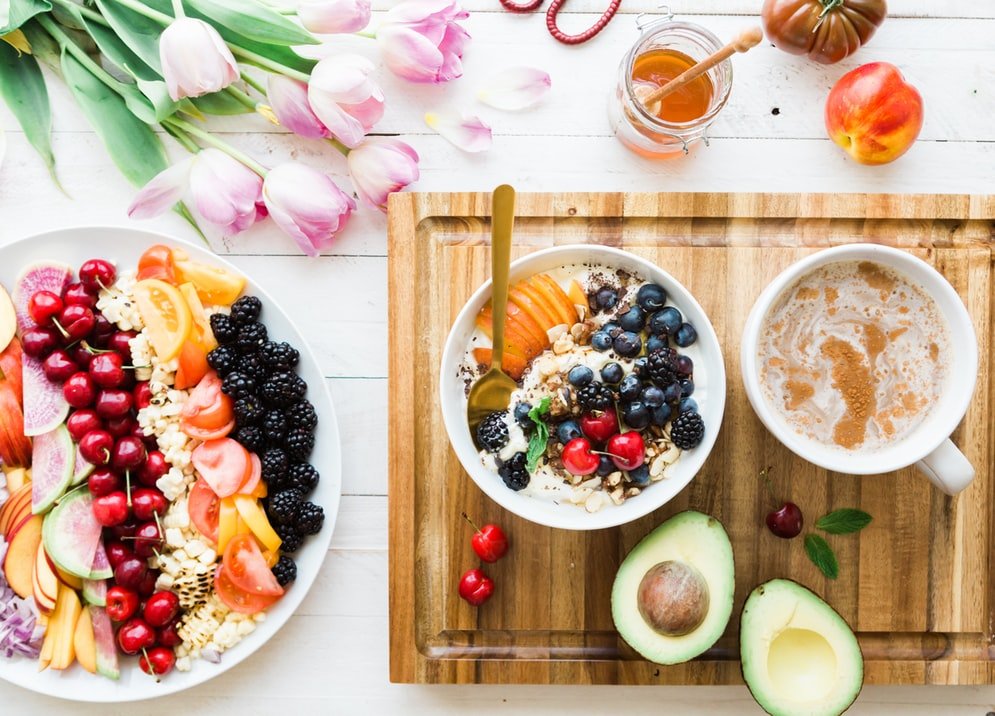Why Alcohol Is So Important to Weight Loss and What You Need to Know
Subscribe to our weekly newsletter below

“Will alcohol affect my weight loss goals” is one of the most frequently asked questions by our clients looking to achieve their body and lifestyle transformations — and it’s not surprising. We’re constantly bombarded with conflicting information about weight loss and alcohol. On the one hand, we’re told that drinking a glass of red wine a day is good for our health, yet on the other, we’re told that we must forgo all alcoholic libations to live our healthiest lives. Which is it?
Alcohol and weight loss aren’t exactly a match made in heaven, and if you’re trying to transform your body and health, it’s important to understand the role alcohol plays in both weight loss and weight gain. But the Louise Parker Method isn’t about making drastic and unsustainable changes. Our unique four-pillar approach — eat beautifully, work out intelligently, think successfully and live well — combines incredible results with lasting lifestyle changes to give you a sustainable and enjoyable route to your best life. There’s no place for guilt or denial; our method is a totally integrated approach that addresses all of the lifestyle, nutrition and fitness choices acting as barriers to reaching your goals — including alcohol.
It’s only when we’re armed with the facts that we can change the way we think in meaningful and sustainable ways. If you’re reluctant to give up your daily glass of wine or weekend pint of beer, here’s everything you need to know to make smart decisions about alcohol.
Alcohol and the Calorie Deficit
The science of weight loss is relatively simple in theory: in order to lose weight, you need to be in a calorie deficit — you need to burn more calories than you consume. But things get a little more complicated when the formula is applied to real life. You may be eating nutritious balanced foods and steering clear of sugary treats and salty snacks, but you may not be hitting that elusive calorie deficit because of what you’re drinking. Alcohol contains a deceptively high amount of calories — far more than most people realise.
What do you think has fewer calories: a glass of wine or an ice cream? A pint of beer or a slice of pizza? Check out our graph below and you may be surprised to see how many calories are in your favourite alcoholic drinks, especially when you see them compared to other foods!
Alcohol contains around seven calories per gram, compared to just four in a gram of protein or carbohydrates — that’s a lot of energy. Not only that, but drinking calories is a lot less filling than eating them. Whereas eating three large slices of pizza will fill you up, glugging down three glasses of wine over the course of the night is less likely to leave you feeling full and satiated, so you keep going. Over the course of a night, you could end up drinking hundreds or even thousands of additional calories without even realising it. It goes without saying, then, that drinking alcohol regularly will make it difficult for you to hit that deficit necessary for weight loss.
Alcohol and ‘Empty’ Calories
Alcoholic drinks are not only calorific, but they also contain what are commonly called “empty” calories, which means that they contain very few beneficial nutrients. Even foods like ice cream contain some nutrients necessary to keep our bodies running optimally.
Did you know that when you consume alcohol, your body uses the glucose from its carbohydrates to fuel your body before tapping into what you’ve eaten? You are literally fueling your body with alcohol. And when your body uses alcohol as a primary source of energy, all of the glucose and lipids become adipose tissue — otherwise known as fat. All the extra sugar and calories from alcohol lead to weight gain, especially around the abdominal area.
Alcohol and Your Organs
Alcohol contains toxins that are difficult for our bodies to process, so we rely on our liver to filter alcohol into our system. When we consume alcohol in small doses, our liver is pretty good at it, but drinking alcohol regularly takes its toll over time. When alcohol reaches the liver, it produces acetaldehyde, a toxic enzyme that damages the liver cells and causes permanent scarring. Not only that, but in order to do its job effectively, your liver requires water, but alcohol is a diuretic that dehydrates your body and forces your liver to find water from other sources in your body. If you’ve ever woken up with a banging headache after a night of heavy drinking, you know first hand the effect of dehydration on the body.
But what does this have to do with weight loss? Well, filtering alcohol is not the liver’s only function. The liver also plays an essential role in metabolising fats, carbohydrates and proteins. When you drink too much alcohol, the liver is unable to effectively metabolise those carbohydrates, proteins and fats, so they go straight to your waistline which will set you back if your goal is weight loss.
Alcohol and Digestion
Drinking alcohol can also impact your digestive function. Good digestion is essential for healthy weight loss and for the optimal functioning of the entire body. Digestive secretions break food down into macro and micronutrients so that they can be absorbed and used by the body. By putting stress on the stomach and the intestines, alcohol decreases digestive secretion and the movement of food through the tract, which halts the absorption of nutrients.
As a result, our digestion becomes sluggish and slow, and we’re more prone to bloating, constipation and a whole load of other negative side effects.
Alcohol and Eating Not So Beautifully
Many of us will have made a poor decision when intoxicated — maybe a late-night online shopping spree or a few more rounds of drinks than we could really afford. We know that alcohol lowers our inhibitions and makes it harder for us to make the choices we’d usually make, and this also applies to our mindset concerning food choices. Hands up if you’ve ever gobbled down handfuls of crisps during a night of drinking? Well, it turns out that there’s a scientific reason why long alcohol-fueled nights inevitably lead to food binges.
A recent study found that when mice were given ethanol (the chemical in alcohol) over a period of three days, they drastically increased their food intake. What this reveals is that alcohol may trigger hunger signals in the brain, which make us feel like we need to eat more. A study by the National Institute of Health also reveals that when we drink more, the quality of our diet decreases. In practice, this means that the more booze you drink, the more foods high in unhealthy fats and added sugars you reach for.
Alcohol and (Un)Intelligently Working Out
Alcohol doesn’t only affect us when we’re drinking it — the consequences of a heavy night can be long-lasting and affect other areas of our lives. Have you ever rolled out of bed with a terrible hangover and decided to forgo the gym in favour of a duvet day? Or if you make it to the gym with a hangover, do you find that you struggle far more and are incapable of performing exercises to your usual standard? When you drink, it’s harder to work out intelligently.
As we’ve already discussed, alcohol is a diuretic, which means that drinking alcohol dehydrates your body and affects the flow of blood through your body during exercise. When you’re dehydrated, it’s also more difficult to control your temperature effectively, so you may end up overheating and getting hot and flustered during your workout routines.Not only could that night of drinking add heaps of calories to your body, but you’ll also be less equipped to burn them off. More calories in and fewer calories out is not a good combination when you want to reach your weight loss goals.
Alcohol and Hormones
Alcohol can negatively affect hormone levels, especially testosterone. Testosterone plays a role in many metabolic processes, including muscle formation and fat burning, which are at the heart of weight loss. Studies have also found that low testosterone levels can induce metabolic syndrome in men, which leads to:
- High cholesterol
- High blood pressure
- High blood sugar levels
- High body mass index (BMI)
As we can see, it’s not just the dreaded case of the “beer belly” we need to worry about. Drinking too much alcohol can cause real hormonal changes, which not only make it much harder to drop the pounds but can also affect your overall health. High blood pressure and blood sugar levels can lead to a host of health conditions, such as diabetes.
Louise Parker Method and Alcohol
If you want feel better, sleep better, have improved digestion and healthier organs, and drink fewer excess “empty” calories, it’s certainly worth thinking about whether that glass of wine or pint of beer is really worth it. You don’t have to cut out alcohol altogether, instead we focus on finding a balance that works for you.
On Louise Parker Programmes we don’t expect you to give up alcohol altogether but we do encourage an initial temporary period where you give up the booze to give yourself a chance to embed new habits. The very reason we cut out the alcohol at the start is firstly to get the result you want, but essentially to reset your mindset and what’s really ‘worth it’ to you. And then, when you’re thrilled with the results, we re-introduce your worth-its, including alcohol, in the Balance Phase. (If however a glass or two of wine is important to you during your TRANSFORM phase, we can help you to incorporate this too – it’s exactly the sort of thing your dietitian will help you plan for).
Long term, we’re not recommending that you live in a home that is alcohol-free (unless you want to). We help you to live around any type of food and drink and make the mindful choice whether you want something or not. And if you make the choice to enjoy something, then you also have the knowledge and habits to balance it all out. In short, we help our clients define their ‘worth it’s’ – a perfectly chilled glass of rose with a great friend? Absolutely worth it! A warm glass of chardonnay in a packed pub on a Thursday night? Probably not worth it.
To find out how to structure a lifestyle change that works for you, call the Louise Parker Method team today for a consultation with one of our expert dietitians.
& More
Receive 10 free recipes to your inbox!
Sign up and we will send you 10 free recipes





